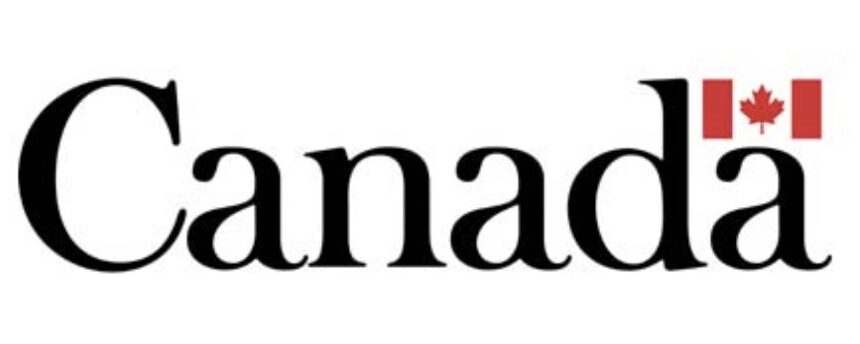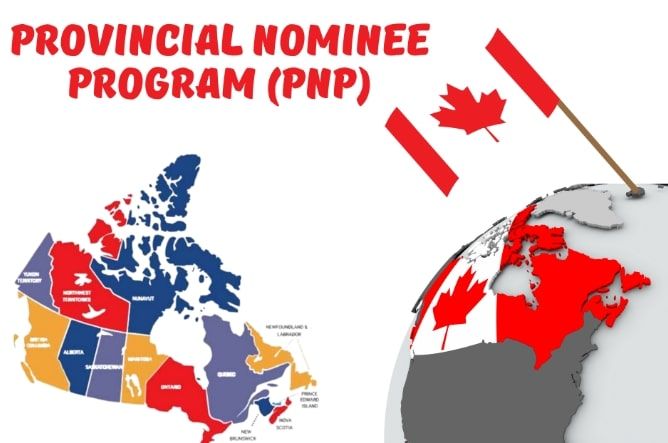Fully Funded Canadian Scholarships for Nigerian Students
Canada stands out as a premier destination for international students, offering a blend of high-quality education, cultural diversity, and abundant opportunities. For Nigerian students aspiring to study abroad, fully funded Canadian scholarships present an unparalleled pathway to achieving academic excellence without the financial burden. This comprehensive guide delves into the various fully funded scholarships available in Canada for Nigerian students, providing detailed insights into eligibility criteria, application processes, and tips for successful applications. Additionally, we will explore related topics such as job opportunities, visa applications, and housing options to ensure a smooth transition to studying and living in Canada.
Find your Eligibility for FREE!!
Why Choose Canada for Higher Education?
Canada is renowned for its world-class universities, multicultural environment, and supportive policies for international students. The country boasts a robust education system that emphasizes research, innovation, and practical learning. Here are some compelling reasons to choose Canada for higher education:
- Quality Education: Canadian universities consistently rank among the best in the world, offering a wide range of programs from undergraduate to postgraduate levels.
- Cultural Diversity: Canada’s multicultural society provides a welcoming environment for international students, fostering a sense of belonging and community.
- Affordable Education: Compared to other popular study destinations like the US and UK, Canada offers more affordable tuition fees and living costs.
- Work Opportunities: International students in Canada can work part-time during their studies and full-time during breaks, providing valuable work experience and financial support.
- Immigration Pathways: Canada offers numerous pathways to permanent residency for international students, making it an attractive option for those looking to build a future in the country.
Types of Fully Funded Scholarships in Canada
1. Government-Funded Scholarships
The Canadian government offers several scholarship programs to attract and retain international talent. Some of the notable government-funded scholarships include:
- Vanier Canada Graduate Scholarships: This prestigious program aims to attract world-class doctoral students by offering a significant financial award of $50,000 per year for three years. The scholarship is open to both Canadian and international students and is awarded based on academic excellence, research potential, and leadership skills.
- Banting Postdoctoral Fellowships: This fellowship program provides funding to the very best postdoctoral applicants, both nationally and internationally, who will positively contribute to Canada’s economic, social, and research-based growth. The fellowship offers $70,000 per year for two years, allowing recipients to focus on their research and professional development.
2. University-Specific Scholarships
Many Canadian universities offer fully funded scholarships to international students, recognizing the importance of attracting diverse talent. Some of the prominent university-specific scholarships include:
- University of Toronto: The University of Toronto offers various scholarships and fellowships for international students at both undergraduate and graduate levels. The Lester B. Pearson International Scholarship, for instance, covers tuition, books, incidental fees, and full residence support for four years.
- University of British Columbia: UBC provides numerous scholarships, including the International Leader of Tomorrow Award and the Donald A. Wehrung International Student Award. These awards recognize international students who demonstrate superior academic achievement, leadership skills, involvement in student affairs and community service, and recognized achievement in other key areas.
- McGill University: McGill offers the McGill Entrance Scholarship Program, which provides scholarships ranging from $3,000 to $12,000 to international students based on academic merit. Additionally, the university offers the MasterCard Foundation Scholars Program, which provides comprehensive scholarships to students from Sub-Saharan Africa, including Nigerian students.
3. Organization-Funded Scholarships
Several organizations and foundations also provide fully funded scholarships for international students in Canada. Some notable ones include:
- Trudeau Foundation Scholarships: The Trudeau Foundation offers doctoral scholarships for international students in the social sciences and humanities. The scholarship provides up to $60,000 per year for up to four years, covering tuition fees and living expenses.
- MasterCard Foundation Scholars Program: This program provides comprehensive scholarships to students from Sub-Saharan Africa, including Nigerian students. The scholarship covers tuition fees, living expenses, and other related costs, enabling students to focus on their academic pursuits.
Eligibility Criteria for Fully Funded Scholarships
The eligibility criteria for fully funded scholarships in Canada vary depending on the specific scholarship program. However, some common requirements include:
- Academic Excellence: Most scholarships require applicants to have an outstanding academic record, typically demonstrated through high grades, academic awards, and research publications.
- Language Proficiency: Proficiency in English or French, depending on the program and university requirements. Applicants may need to submit scores from standardized language tests such as TOEFL, IELTS, or TFI.
- Letter of Motivation: A compelling statement of purpose or letter of motivation outlining your academic goals, research interests, and reasons for choosing Canada. This document should highlight your unique qualities, experiences, and aspirations.
- References: Letters of recommendation from academic or professional referees who can attest to your abilities, achievements, and potential.
- Research Proposal: For graduate and postdoctoral scholarships, applicants may need to submit a research proposal outlining their intended research project, methodology, and expected outcomes.
Application Process for Fully Funded Scholarships
Applying for fully funded scholarships in Canada involves several steps. Here is a general overview of the application process:
- Research Scholarship Opportunities: Identify the scholarships that align with your academic goals, eligibility criteria, and financial needs. Utilize university websites, scholarship databases, and other resources to find suitable scholarship programs.
- Prepare Application Documents: Gather all required documents, including academic transcripts, letters of recommendation, a statement of purpose, and a research proposal (if applicable). Ensure that all documents are up-to-date and accurately reflect your qualifications and achievements.
- Submit Application: Complete the application form and submit it along with the required documents before the deadline. Pay close attention to the application instructions and submit all materials in the specified format.
- Interview: Some scholarship programs may require an interview as part of the selection process. Prepare for the interview by researching the scholarship program, university, and potential research opportunities. Practice common interview questions and be ready to discuss your academic goals, research interests, and career aspirations.
- Notification of Results: Await the notification of results, which is usually communicated via email. If selected, you will receive further instructions on accepting the scholarship offer and preparing for your studies in Canada.
Tips for a Successful Scholarship Application
- Start Early: Begin your scholarship search and application process well in advance of the deadlines. This will give you ample time to gather required documents, prepare a strong application, and address any potential issues.
- Tailor Your Application: Customize your application for each scholarship, highlighting your strengths, achievements, and how you meet the eligibility criteria. Avoid using generic statements and instead provide specific examples and evidence to support your application.
- Proofread: Ensure your application is free of errors, well-organized, and clearly written. Ask a friend, mentor, or academic advisor to review your application and provide feedback.
- Seek Recommendations: Choose referees who can provide strong and relevant recommendations. Provide them with ample time to write the letter and supply them with relevant information about your academic goals and achievements.
- Follow Instructions: Adhere to the application instructions and submit all required documents in the specified format. Incomplete or incorrectly submitted applications may be disqualified.
Job Opportunities in Canada for Nigerian Students
While pursuing your studies in Canada, you may also explore part-time job opportunities to gain work experience and supplement your income. Some popular job options include:
- Pet Care Assistant Jobs: If you love animals, consider pet care assistant jobs in the UK or explore similar opportunities in Canada. These jobs offer flexible hours and a rewarding work environment.
- Dog Training Jobs: With the right skills and certifications, you can find dog training jobs in Canada that offer competitive salaries and the opportunity to work with various breeds.
- Pet Care Jobs: The demand for pet care jobs in Canada is growing, providing various opportunities for students to work as pet sitters, dog walkers, or pet groomers.
Additionally, Nigerian students can explore other part-time job opportunities, such as:
- Fruit Picker Jobs: With earnings of $850 per week in fruit picker jobs in Canada, this can be a lucrative option for students looking to earn extra income during their studies.
- Warehouse Worker Jobs: High-paying warehouse worker jobs in Canada offer flexible hours and competitive wages, making them an attractive option for students.
- Care Assistant Jobs: With salaries of $37k per year, care assistant jobs provide a stable income and valuable work experience in the healthcare sector.
Visa Application and Immigration Tips
Navigating the visa application process can be challenging, but with the right information and preparation, you can increase your chances of success. Here are some tips:
- Understand Visa Requirements: Familiarize yourself with the requirements for a Canadian study permit, including financial proof, acceptance letter, and other supporting documents.
- Apply Early: Submit your visa application well in advance to avoid delays and ensure timely processing.
- Provide Accurate Information: Ensure all information provided in your application is accurate, consistent, and supported by relevant documents.
- Seek Professional Help: Consider consulting with immigration experts or using resources like the Application for a United Arab Emirates visa guide for additional insights and assistance.
- Explore Visa Sponsorship Opportunities: Some jobs in Canada offer visa sponsorship, providing a pathway to permanent residency. Explore options like dog walker jobs with visa sponsorship or caregiver jobs with visa sponsorship to enhance your immigration prospects.
Housing Options for Nigerian Students in Canada
Finding affordable and suitable housing is crucial for a comfortable and successful stay in Canada. Some options to consider include:
- University Accommodation: Many universities offer on-campus housing for international students, providing a convenient and supportive living environment.
- Off-Campus Housing: Explore off-campus housing options, such as shared apartments, private rentals, or homestays. Utilize resources like Finding Cheap Apartments in Canada as a New Immigrant to locate affordable housing options.
- Temporary Housing: Look into affordable temporary housing options for immigrants in Canada, which can provide a short-term solution while you search for long-term accommodation.
Additionally, consider the following tips for securing housing in Canada:
- Research Neighborhoods: Familiarize yourself with different neighborhoods and their amenities, such as public transportation, grocery stores, and recreational facilities.
- Budget Wisely: Determine your housing budget and prioritize your needs and preferences, such as proximity to campus, safety, and amenities.
- Apply Early: Begin your housing search and application process well in advance to secure the best options and avoid last-minute stress.
- Seek Assistance: Utilize university housing services, online housing platforms, and local real estate agents to find suitable accommodation.
Adapting to Life in Canada
Moving to a new country can be both exciting and challenging. For Nigerian students transitioning to life in Canada, embracing the opportunities and navigating the challenges can lead to a rewarding experience. Here are some expanded tips to help you adapt to life in Canada:
Embrace Cultural Diversity
Canada is renowned for its multicultural society, where people from various backgrounds coexist and contribute to the country’s rich cultural fabric. Embracing this diversity can significantly enrich your experiences and broaden your perspectives.
- Attend Cultural Events: Participate in cultural festivals, celebrations, and events to learn about different traditions and customs. This can help you understand and appreciate the diversity that Canada offers.
- Join Cultural Clubs: Many universities have cultural clubs and organizations that celebrate diversity. Joining these clubs can provide opportunities to meet people from different backgrounds and share experiences.
- Try New Cuisines: Explore the diverse food scene in Canada by trying new cuisines from various cultures. This can be a fun and delicious way to experience cultural diversity.
Engage in Campus Activities
Participating in campus events, clubs, and organizations can enhance your university experience and help you build a support network.
- Join Student Organizations: Universities offer a wide range of student organizations, from academic clubs to sports teams and special interest groups. Joining these organizations can help you meet like-minded individuals and develop new skills.
- Volunteer: Volunteering for campus initiatives or community service projects can provide valuable experiences and help you connect with your community.
- Attend Social Events: Participate in social events, such as mixers, workshops, and seminars, to meet new people and expand your network.
Improve Language Skills
Enhancing your English or French language skills can be beneficial for both academic and social interactions.
- Language Courses: Enroll in language courses offered by your university or local community centers to improve your proficiency.
- Conversation Groups: Join conversation groups or language exchange programs to practice speaking with native speakers.
- Watch Media: Watch movies, TV shows, and listen to podcasts in English or French to improve your listening skills and expand your vocabulary.
Explore the Country
Canada is known for its natural beauty, cultural attractions, and unique experiences. Take advantage of your time in Canada to explore all that it has to offer.
- Visit National Parks: Canada has numerous national parks, such as Banff and Jasper, that showcase the country’s stunning natural landscapes.
- Experience Cultural Attractions: Visit museums, art galleries, and historical sites to learn about Canada’s rich history and culture.
- Participate in Local Festivals: Attend local festivals and events to immerse yourself in the community and experience Canadian culture firsthand.
Seek Support
Universities in Canada offer various support services to help students navigate challenges and achieve their goals.
- Counseling Services: Utilize counseling services for mental health support and to manage stress, anxiety, or other personal issues.
- Academic Advising: Seek academic advising to help you plan your coursework, set academic goals, and stay on track for graduation.
- Career Services: Take advantage of career services, such as resume workshops, interview preparation, and job fairs, to prepare for your future career.
Additional Tips
- Stay Connected with Home: Maintain communication with family and friends back home to stay connected and receive emotional support.
- Be Open to New Experiences: Embrace new experiences and step out of your comfort zone to make the most of your time in Canada.
- Build a Support Network: Develop a support network of friends, mentors, and professionals who can provide guidance and support throughout your journey.
By following these tips, Nigerian students can successfully adapt to life in Canada and make the most of their educational and personal experiences. Embrace the opportunities that Canada offers, and embark on a rewarding journey of growth and discovery.
Conclusion
Fully funded Canadian scholarships provide an excellent opportunity for Nigerian students to pursue their academic goals without financial constraints. By understanding the types of scholarships available, eligibility criteria, and application processes, you can increase your chances of securing a scholarship and achieving academic success. Additionally, exploring job opportunities, visa application tips, and housing options will ensure a smooth transition to studying and living in Canada.







